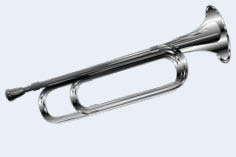 In September (this year exceptionally on 3. October [d. Üs]) the Jews celebrate New Year's Day, “Rosh Hashanah”, which means “head of the year” in Hebrew. It is part of the tradition of the Jews that they eat a piece of a fish's head, symbolic of the head of the year, and greet each other with “Leschana towa”, which means “Have a good year!”. According to tradition, there is a connection between the feast day of Rosh Hashanah and the sixth day of creation week, on which God created man.
In September (this year exceptionally on 3. October [d. Üs]) the Jews celebrate New Year's Day, “Rosh Hashanah”, which means “head of the year” in Hebrew. It is part of the tradition of the Jews that they eat a piece of a fish's head, symbolic of the head of the year, and greet each other with “Leschana towa”, which means “Have a good year!”. According to tradition, there is a connection between the feast day of Rosh Hashanah and the sixth day of creation week, on which God created man.
In the Hebrew text of the 3. Book of Moses 23,24 the day is given as "Sikron Terua", which means "Day of Remembrance with Trumpet Blowing". Therefore, this day is often referred to in English as the Festival of Trumpets. Many rabbis teach that on Rosh Hashanah a shofar (a trumpet made from a ram's horn) was blown at least 100 times, including a series of 30 times to signal hope for the coming of the Messiah. I have a shofar and I can tell you that it is very difficult to get any sound out at all. I have read that at the Rosh Hashanah festival service it was customary to have a trained stand-in in case the first one was unable to blow the required number of trumpet calls.
According to the Jewish sources, there are three types of beeps that were blown on that day:
Regarding Teru'a, the Talmud says, "When there is judgment from below (a broken heart), one needs no judgment from above". Rabbi Moshe ben Maimon (known as Maimonides), perhaps the most important Jewish scholar and teacher of the Middle Ages, adds the following important qualification:
It is not enough that God alone is my king. If all humanity does not recognize God as King, then something is missing in my own relationship with God. It is part of my love for the Almighty that I help all people recognize Him. Of course, this is largely an expression of my deep concern for others. But it also affects my own sense of God's all-encompassing royal rule.
[Blowing the trumpets - enlarge picture] Ancient Israel originally used ram horns for their trumpets; But after a while these became like we did 4. Learned Moses 10, replaced by trumpets (or trumpets) made of silver. The use of trumpets is mentioned 72 times in the Old Testament. They were blown on various occasions: to warn of danger, to call the people together for a festive meeting, to announce announcements and as a call to worship. In times of war, trumpets were used to prepare the soldiers for their mission and then to give the signal to engage in combat. The arrival of the king was also announced with trumpets.
In modern times, some Christians celebrate Trumpet Day as a feast day with a service and often combine this with a reference to future events - Jesus' second coming or the rapture of the church. As well-intentioned as these interpretations of this festival are, they overlook the fact that Jesus has already fulfilled what this festival pointed to. As we know, the old covenant, which included the day of trumpets, was temporary. He was used to announce the coming Messiah to the people. His titles are prophet, priest, sage and king. The sounding of the trumpet on Rosh Hashanah not only signals the beginning of Israel's annual festival calendar, but proclaims the message of this festival: "Our King is coming!"
For me, the most significant part of the day of trumpets is how it points to Jesus and how Jesus fulfilled that at his first coming: through his incarnation, his atonement, his death, his resurrection, and his ascension. Through these "events in Christ's life," God not only fulfilled His covenant with Israel (the Old Covenant), but changed all time forever. Jesus is the head of the year - the head or lord of all time, especially because he created time. He is our tabernacle and we have new life in him. Paul wrote: “If anyone is in Christ, he is a new creature; the old has passed away, behold, the new has come" (2. Corinthians 5,17).
Jesus is the last Adam. He prevailed where the first Adam had failed. Jesus is our Passover, our unleavened bread and our reconciliation. He is the one (and only) who removes our sins. Jesus is our Sabbath in which we find rest from sin. As Lord of all time he lives in us now and all our time is sacred because we live the new life we have in communion with him. Jesus, our King and Lord, sounded the trumpet once and for all!
Living in fellowship with Jesus,
Joseph Tkach
President
GRACE COMMUNION INTERNATIONAL
This website contains a diverse selection of Christian literature in German. Translation of the website by Google Translate.